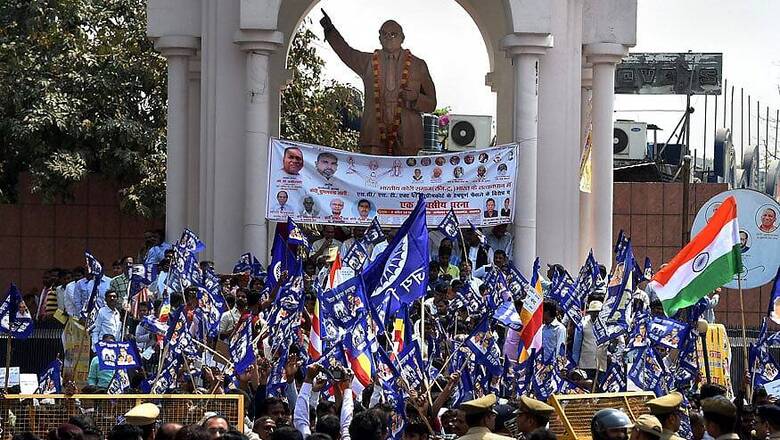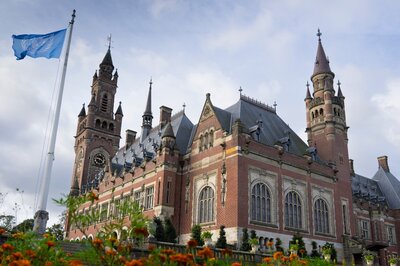
views
New Delhi: The round two of 'Bharat Bandh' protests across the country will be held in early August. Only this time, the scale on which the protests will be held will be much bigger and will involve not just Dalits, but various farmer bodies and OROP activists as well, the organisers behind the April 2 protests told News18.
One of the main organisers behind the April 2 protests against the Supreme Court's ruling on the Scheduled Caste/Scheduled Tribe Act, told News18 that pan-India protests were being planned just before the end of Parliament's monsoon session. The monsoon session of Parliament will start from July 18 and end on August 10.
"For the first time in the country, Dalits, ex-servicemen, and farmers will come together on a platform to raise their concerns and to express their anger against the current dispensation.
The idea is to hold the Parliament accountable and make our voice heard in the Parliament hall so that our issues too are discussed there," said Ashok Bharti, former chairperson of National Confederation of Dalit Organisations (NACDOR), and one of the organisers of April 2 protests.
Bharti claimed that All India Kisan Sabha, which held the much publicised silent protest march in Maharashtra in March this year, along with Indian Ex Servicemen Movement (IESM), an association of former soldiers who have been at the forefront of One Rank One Pension (OROP), will also join the protests.
"Not just farmers and soldiers, there are several other sections of the society that are itching to raise their voice against the present government. Traders and students are among them. We will try and hold peaceful protests in almost every state simultaneously. We expect more people to come out this time," Bharti said.
He added that there were at least four reasons, other than the fact that indiscriminate violence was used against Dalit protests on April 2 and "fabricated" cases were lodged against Dalit protestors.
"First is the social oppression which has been increasing rapidly over the last few years. Second is that we have been pretty much excluded politically; every party takes for granted our vote to BSP. Third is that we don't have a stake in the country's economy. And fourth is the cultural attack on us, on our dietry habits and our profession," Bharti said.
Bharti’s role as the head of National Confederation of Dalit Organisations (NACDOR) in organising the April 2 protests was recently discussed at Multi Agency Centre (MAC) — the hub of the country’s various intelligence communities, Firstpost.com had reported soon after the protests.
Protests were reported from several states including Uttar Pradesh, Madhya Pradesh, Rajasthan, Bihar, Jharkhand, Haryana, Punjab, after the Supreme Court on March 20 banned automatic arrests registration of criminal cases under the SC/ST Act, which many described as a 'dilution' of the Act.




















Comments
0 comment